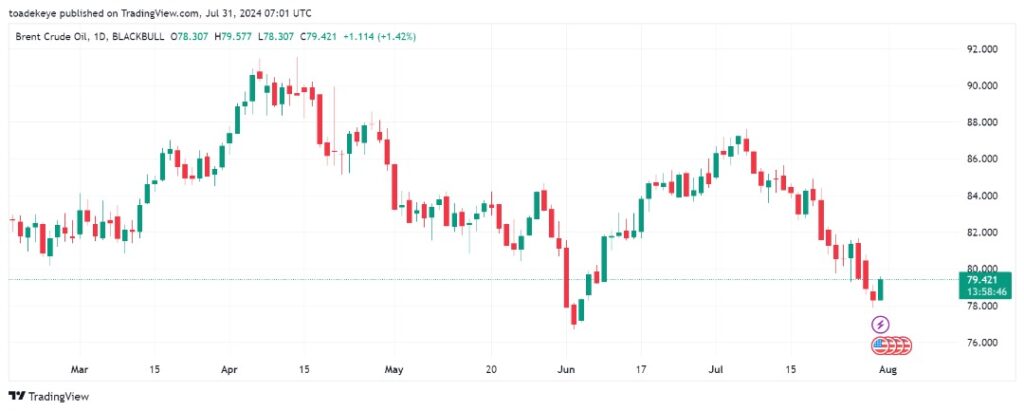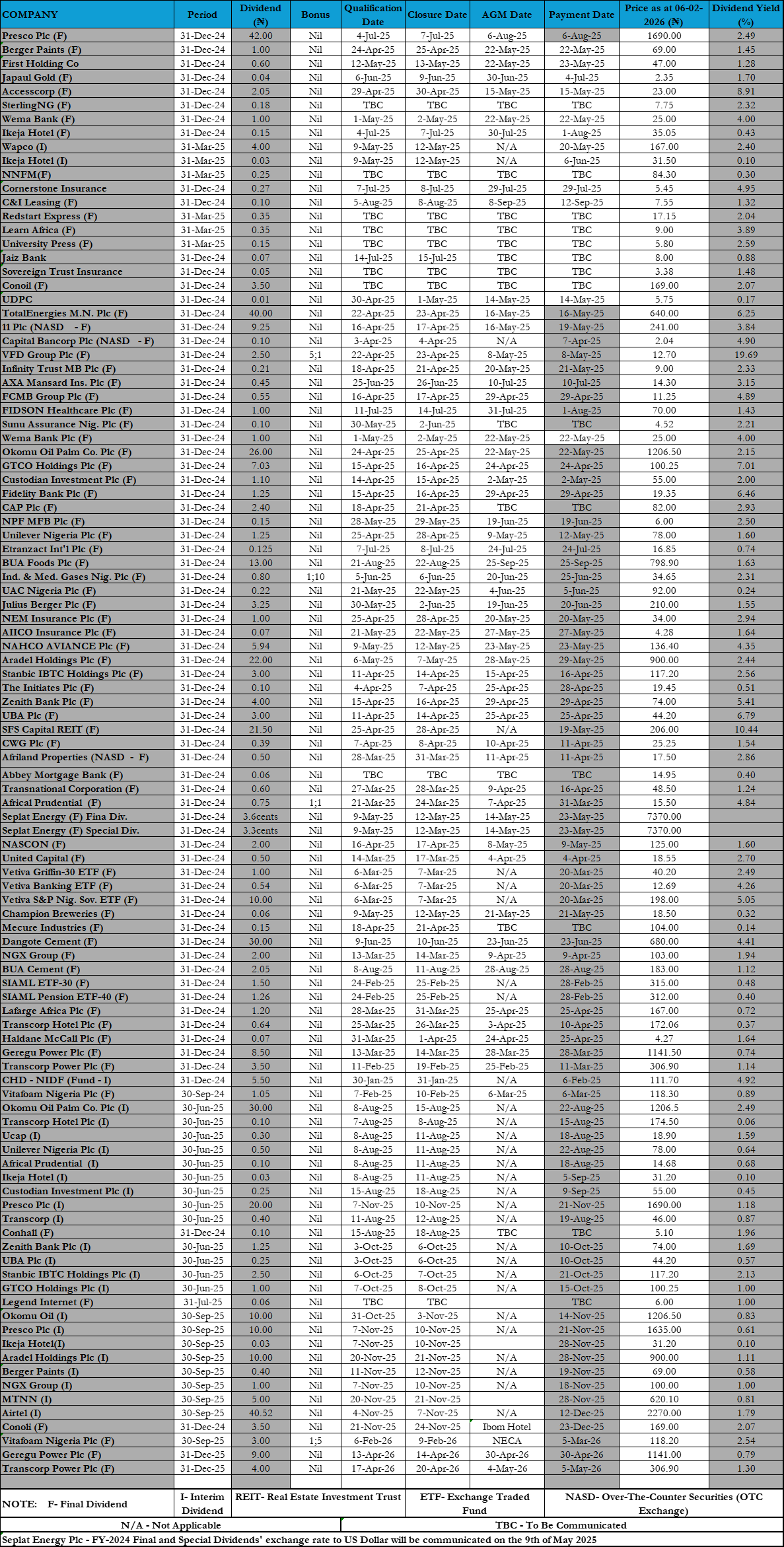
Taiwo Adekeye, Research Analyst
Oil prices settled higher on Tuesday, bouncing off multi-month lows hit in the previous session, as investor attention turned to supply tightness and financial markets recover from their recent slump. Brent crude futures rose by 0.2% to settle at $76.48 a barrel while U.S. West Texas Intermediate futures surged by 0.4%, to close at $73.20 per barrel. Both benchmarks ended a three-session declining streak.
Global Markets Rebound: Nikkei +10%, S&P 500 +1.04%, Nasdaq +1.03%
Equities around the world rebounded on Tuesday from the previous day’s aggressive sell-off while Treasury yields rose and the dollar was slightly higher as investors ventured back into risk assets. Oil prices settled higher on Tuesday after hitting multi-month lows on Monday. Japanese benchmark Nikkei slumped by 12.4% on Monday but rebounded by almost 10% dampening fears of market crash. The S&P 500 shed 3% on Monday, while the Nasdaq declined by 3.43%, extending a recent sell-off as fears of a possible U.S. recession spooked global markets. However, S&P 500 surged by 1.04%, closing at 5,240.03points and the Nasdaq Composite gained 166.77 points( was up by 1.03%) closing at 16,366.86. MSCI’s gauge of stocks around the globe was down by 3% on Monday, but closed rose 1.17%, to close at 770.99 on Tuesday.
U.S. PMI Up to 51.4, Unemployment Rises to 4.3%
U.S. services sector activity rebounded from a four-year low in July amid a bounce back in new orders and the first increase in employment in six months dampening the fear of recession initially triggered by unemployment. nonmanufacturing purchasing managers (PMI) index increased to 51.4 last month from 48.8 in June, which was the lowest level since May 2020. A PMI reading above 50 indicates growth in the services sector, which accounts for more than two-thirds of the economy. Conclusively, unemployment rate increased to a nearly three-year high of 4.3% in July from 4.1% in June.
Canada’s PMI Drops to 47.0, Services Sector Weakens
Canada’s services economy deteriorated in July as activity and new business declined, while elevated wage costs contributed to increased inflation pressures. The headline business activity index edged up to 47.3 from 47.1 in June but was holding well below the 50 no-change threshold, signaling reduced activity. However, the S&P Global Canada Composite PMI Output Index, which captures manufacturing as well as service sector activity, fell to 47.0 last month from 47.5 in June, marking its lowest level since March.
Japan’s Services PMI Jumps To 53.7 In July
Japan’s service-sector activity returned to growth in July, bolstered by solid domestic demand, but slow overseas orders and unabated cost pressures continue to limit businesses. The final au Jibun Bank Service purchasing managers’ index (PMI) rose to 53.7 last month, from 49.4 in June, which was the first contractionary reading in 21-months. However, In July, the composite PMI, which combines the manufacturing and service activities, swung back to an expansionary figure of 52.5 from 49.7 in the previous month.
Nigeria Issues $500M 5-Year Tenor Bond
The Federal Government of Nigeria has issued its Series I Domestic USD Bond, seeking to raise at least $500 million from domestic and international investors. With a 5-year maturity, the bond is available to Nigerians, non-Nigerians residing in Nigeria, Nigerians abroad, and qualified institutional investors. It features a coupon rate linked to comparable FGN Eurobonds and provides full repayment of the principal in US dollars at maturity.Additionally, Interest will be paid semi-annually.
CBN Approves Unity bank Plc, Providus Bank Merger
The Central Bank of Nigeria (CBN) has approved financial support for the merger of Unity Bank Plc and Providus Bank Limited to enhance the stability of the financial system and mitigate systemic risks. This support will help Unity Bank address its obligations and ensure the smooth operation of the merged entity. The decision, in line with Section 42 (2) of the CB Act, 2007, highlights the CBN’s commitment to maintaining financial stability and protecting depositors’ interests, ensuring that the banking sector remains secure and operational.








